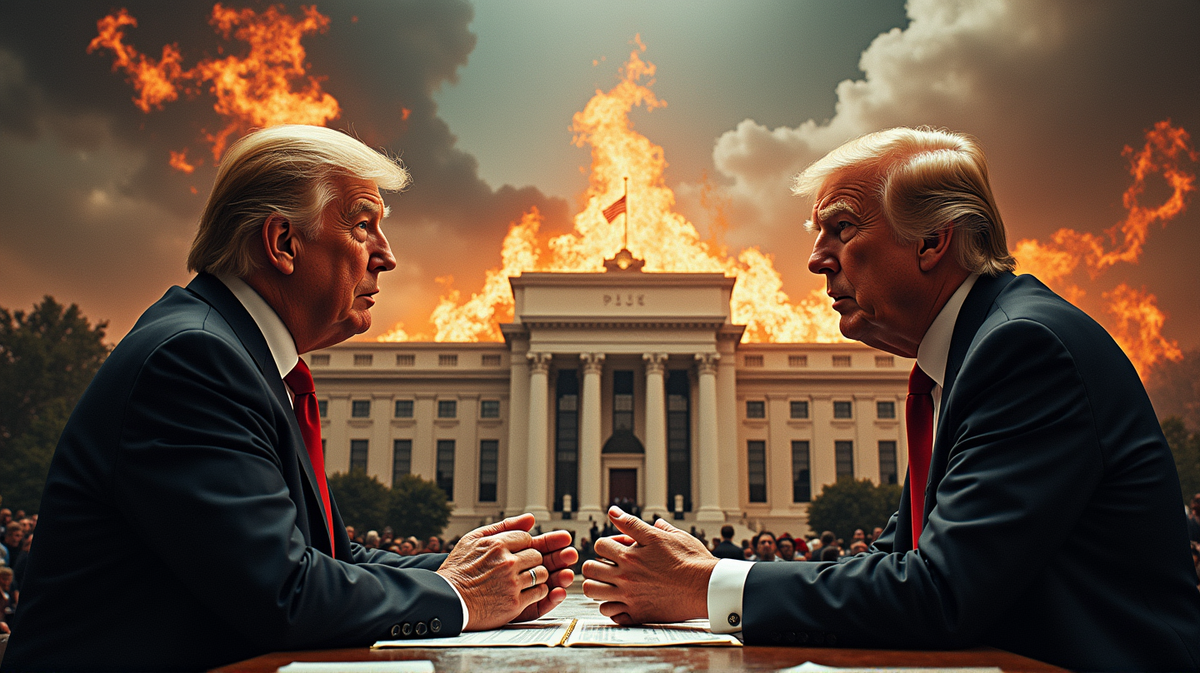Lawmaker Advocates for an Independent Federal Reserve Amidst Political Rifts
Senator Lankford voices the call for an autonomous Fed, diverging from Vice President JD Vance's views on executive influence.

In the turbulent waters of Washington’s power dynamics, Senator James Lankford stands firm on his belief that an independent Federal Reserve is paramount for economic stability. His stance hits the spotlight as he diverges from remarks by Vice President JD Vance, who believes presidential influence on monetary policy is justified.
The Role of Independence
Lankford, speaking on NBC’s “Meet the Press,” underscored the critical roles each branch of government plays. “Let’s each do our job,” he emphasized, advocating for the central bank’s autonomy to manage interest rates, independent of executive pressures. This view comes in direct opposition to recent actions by President Trump, who dismissed Fed Governor Lisa Cook, alleging mortgage fraud—a claim she and her allies dispute as political maneuvering.
A Historical Perspective
The senator’s call for a more detached Federal Reserve recalls shadows of history when former President Nixon was criticized for pressuring the Fed, contributing to economic turmoil. Nixon’s actions remind us of the delicate balance between monetary policy and political ambitions that can drive inflation and unsettle markets. According to Reuters, lessons from the past serve as a stark reminder of the consequences that follow political interference in economic affairs.
Democratic Responses
Adding weight to Lankford’s message, Democratic Representative Ro Khanna also champions transparency and independence within the Federal Reserve. Khanna urged Cook to disclose her mortgage documents, further entangling her case in the fray of transparency versus political influence—knowing full well the broader implications at play.
Future Implications
As debates intensify, the Fed stands at a crossroads where its independence may determine future economic stability. Analysts warn that Lankford’s insistence on detachment from politics could safeguard the economy from volatile policies that historically led to inflationary struggles.
Ultimately, this ongoing conversation highlights the perpetual tug-of-war between government influence and economic freedom—a dialogue that will undoubtedly shape the path ahead.
Navigating the Waters Ahead
For the Fed, maintaining independence amidst political turbulence isn’t merely an exercise of autonomy but a challenge that defines economic resilience in turbulent times. As Lankford and others continue to voice the importance of a nonpartisan approach to monetary policy, the world watches, understanding that these discussions are crucial to the health of global economies.
With these discussions, the need for diligence and understanding becomes paramount as the political landscape evolves. How America addresses this challenge will echo in financial institutions worldwide. In the balance between politics and economics, the stakes are high, and the outcomes will shape future generations.





